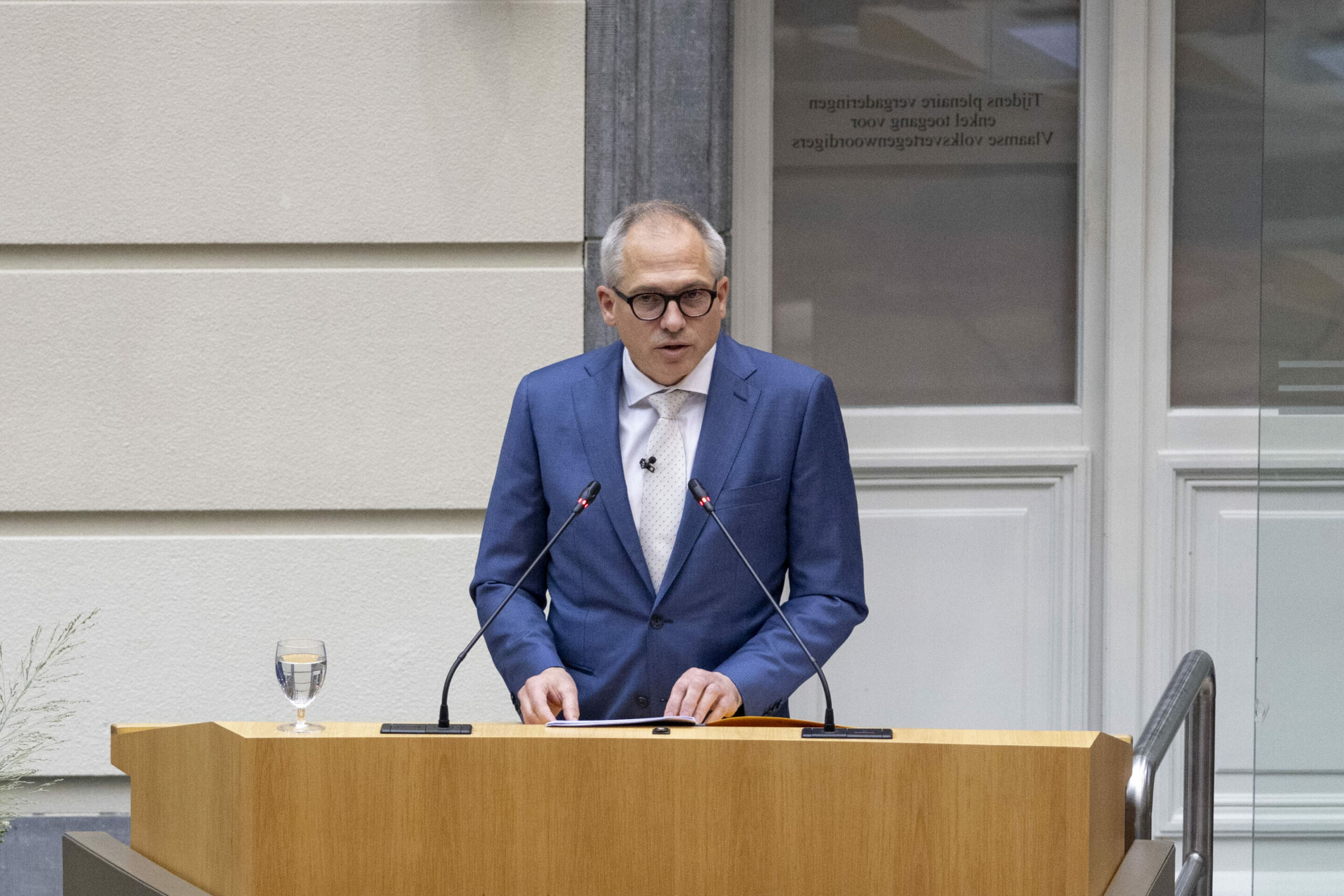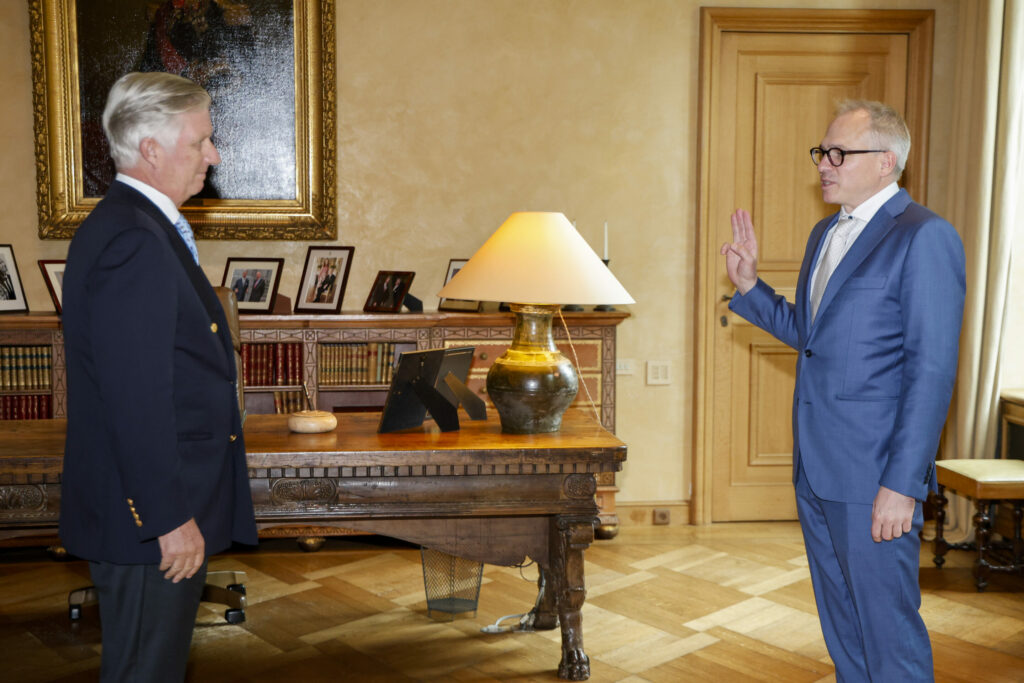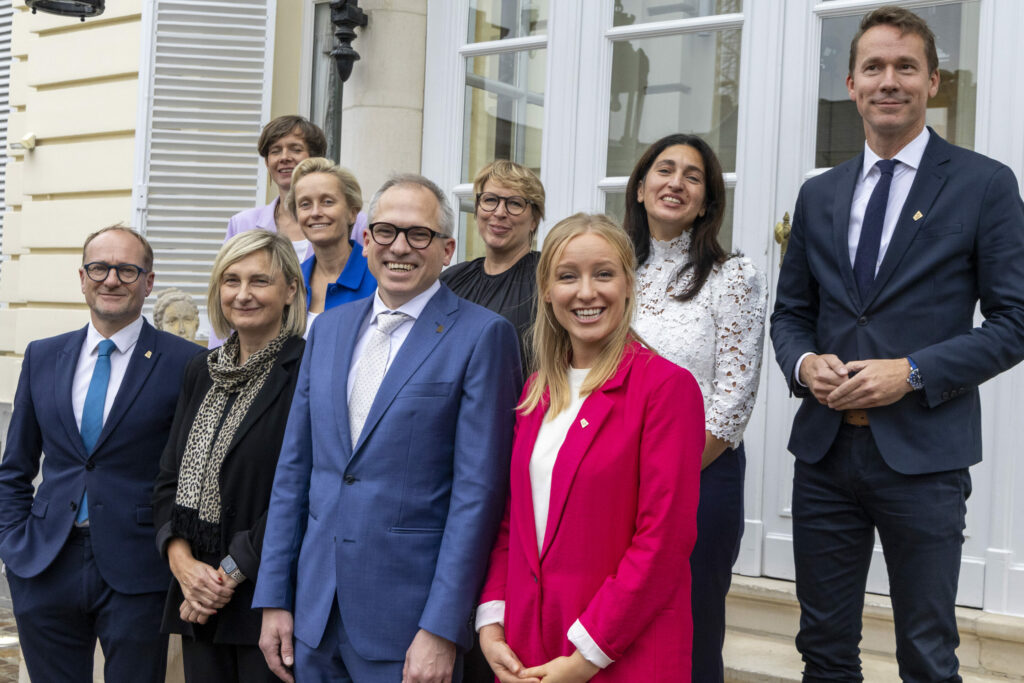After the Flemish Government was officially formed over this weekend, new regional Minister-President Matthias Diependaele (N-VA) held the traditional 'September declaration' in the Flemish Parliament to present the coalition agreement on Monday.
The new coalition of the Flemish Government – consisting of rightwing N-VA, Christian Democrats CD&V and socialist Vooruit – is "not just a document or an agreement," but "a vision for Flanders" and "a pact with the Flemish people," said Diependaele in his speech on Monday.
Earlier in the day, the nine new ministers were sworn in. Immediately afterwards, the new Flemish Government met for the first time before Diependaele went to the Royal Palace to take the oath before the Belgian King. He then went back to the Flemish Parliament to give his speech.
"It is a great honour to stand here today as Minister-President of Flanders. With this team, we have the opportunity to further shape the Flemish nation and lift it to new heights," he said.

Flemish Minister-President Matthias Diependaele. Credit: Belga/Ward Vandael
"In recent months, I have seen politicians around the negotiating table with a clear vision of the future for Flanders. People who have the best interests of our community at heart and want to further develop the potential of everyone in Flanders," Diependaele said.
According to Diependaele, the coalition agreement aims for a "prosperous and warm" Flanders that wants to include "all Flemish people". The government promises €3 billion in additional investments, but at the same time sticks to a balanced budget in 2027.
The coalition agreement is entitled 'Working together for a warm and prosperous Flanders'. This is not just a slogan, but a promise to every Flemish person, according to Diependaele. A prosperous Flanders is "the foundation" for everything, he added.
The new Government is putting forward a series of projects to achieve this, ranging from the ambition to increase the employment rate to 80%, supporting entrepreneurs by tackling the rep tape and signalling to investors that Flanders is open to setting up businesses.

Flemish Minister-President Matthias Diependaele (N-VA) and King Philippe. Credit: Belga/Nicolas Maeterlinck
He also promised that Flanders would take its responsibility in the areas of climate and energy, without "acting rashly," Diependaele said. Climate decisions must always be weighed against "the carrying capacity of citizens and the competitiveness of companies," he said. An example of this is the relaxed renovation obligation.
The Flemish Government is sticking to a balanced budget in 2027, as that is the "guarantee to secure the future of our children and grandchildren," said Diependaele. Despite this tight budget course, the region wants to profile itself as an investment government with "a historic amount" of more than €3 billion in investments.
€1.2 billion to welfare
A large portion of these additional resources – almost €1.2 billion – will go to welfare to invest in tackling the long waiting lists for people with disabilities, youth care, elderly care and childcare.
To finance the additional investments and measures such as the reduction of registration fees, Diependaele's Government is counting on a mix of savings and new income. For example, the price of service vouchers will increase and the tax deduction will be discontinued. Premiums for electric cars will also be scrapped and new electric cars will have to pay road taxes.
After the statement, there was a big round of applause on the benches of N-VA, Vooruit and CD&V.

